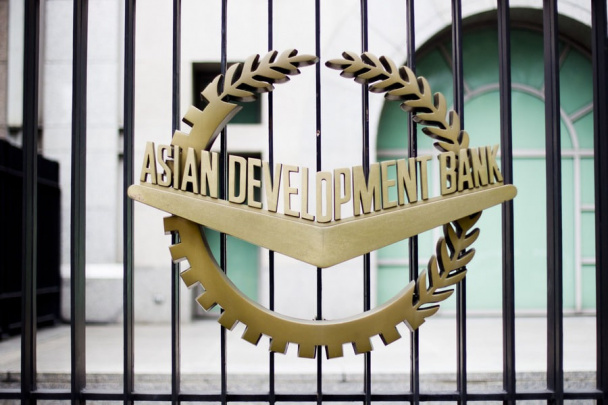ADB expert speaks about importance of ICA Law for Uzbekistan (exclusive)
On August 17, 2021, Uzbekistan’s Law on International Commercial Arbitration (ICA Law) entered into force.

Photo: Asian Development Bank
The law was signed by President Shavkat Mirziyoyev on February 16, 2021, with the purpose of strengthening arbitral resolution of international commercial disputes, defining the role and status of arbitration, and ensuring the implementation of arbitral decisions in line with agreements concluded between Uzbekistan and other states.
Kun.uz conducted an interview with ADB international arbitration expert Thomas Snider on the importance of the ICA Law for Uzbekistan.
Uzbekistan adopted the Law on International Commercial Arbitration (ICA Law) supported by the Asian Development Bank in February this year. Could you please highlight the law’s main framework and its importance?
Arbitration is an independent mode of dispute resolution, which may serve as an alternative to national courts. Uzbekistan has passed the ICA Law, and efforts are underway for the amendment of the Economic Procedure Code to reflect changes stemming from the ICA Law. This will not only benefit businesses in Uzbekistan but will also help to establish Uzbekistan as a jurisdiction with a highly developed arbitration system. The courts, by applying the law in order to support arbitration, will likewise play an important role.
The law was promulgated in the context of Uzbekistan's effort to develop its economy and attract foreign investment. The predictability and confidence that foreign investors have in a country's legal system constitute key factors that impact the investment calculus.
The ICA Law is broadly based on the United Nations Commission on International Trade Law (UNCITRAL) Model Law on International Commercial Arbitration (the UNCITRAL Model Law), which was developed in 1985, and amended in 2006.
The UNCITRAL Model Law is anchored in best practices relating to international arbitration from around the world and was developed based on input from arbitrators, judges, and other stakeholders. It represents the state-of-the-art when it comes to national arbitration laws for international commercial arbitration.
But does a jurisdiction necessarily have to use the UNCITRAL Model Law to instill confidence in users of arbitration?
Well, jurisdiction does not necessarily have to use the UNCITRAL Model Law to instill confidence in users of arbitration. The United States (US), for example, has the Federal Arbitration Law, which is not based on the UNCITRAL model. While it incorporates many—if not most—of the same principles that one finds in the UNCITRAL Model Law, it was developed over several decades based on the US experience. Similarly, the United Kingdom has the English Arbitration Act of 1996. While it was not per se based on the UNCITRAL Model Law, it is an example of an arbitration law that works well for that particular legal system.
Nevertheless, many other jurisdictions around the world use the UNCITRAL Model Law as the basis for their national arbitration law. The UNCITRAL has recognized that Uzbekistan's ICA Law is based on, and incorporates the principles of, the UNCITRAL Model Law.
Could you please explain to us in what situations parties may come to the court for judicial support for international commercial arbitration?
There are typically four types of situations where parties may come to the court for some sort of judicial support for international commercial arbitration.
In the first situation, a party starts proceedings in court in apparent breach of an arbitration agreement. However, the other party argues that the court proceeding is not proper because the parties have an arbitration agreement, and the dispute should go to arbitration instead.
The second situation involves interim measures. The arbitration may be ongoing, or an arbitral tribunal may be in the process of being constituted, but one party goes to the court to seek some sort of interim or interlocutory relief, pending the outcome of the arbitration. A typical sort of relief sought would be a freezing order, i.e., an order to freeze the assets, such as bank accounts, of the other party. A party may also sometimes seek an anti-suit injunction to prevent the other party from continuing with court proceedings it has initiated elsewhere, in apparent breach of the arbitration agreement.
The third situation is where an arbitral award has been given, but one party is unhappy with the award and applies to the court of the seat of the arbitration (the court supervising the arbitration) to set aside the award. This is sometimes called “recourse against the award.”
The final situation requiring judicial support is recognition or enforcement of an arbitral award obtained in Uzbekistan or elsewhere. The prevailing party now comes to court to seek an order to enforce the arbitral award as if it were a judgment of the court.
This was about entrepreneurs. But what principles should the judges follow to deal with about mentioned four types of situations?
There are six principles to bear in mind when approaching the four situations.
The first principle is that judges will want to be cognizant of the international nature of international commercial arbitration. This principle is in fact reflected in Article 3 of the ICA Law, which clarifies that in applying the ICA Law, one should have regard to the fact that it is international in origin. The judges can determine how other judges have approached similar questions by looking to case law relating to the UNCITRAL Model Law, or to international case law, which are both widely available online. Article 3 also underscores a very useful principle, the principle of good faith, from which one is entitled to assume that the parties have acted or are supposed to act in good faith in relation to the arbitration proceedings.
Second, judges should give due weight to party autonomy. In international commercial arbitration, the dispute is between parties who are dealing with each other at arm's length. They have negotiated their contract, and they should be free to agree on how their dispute is to be resolved. Thus, as much as possible, regard should be given to the parties' agreement, subject to safeguards necessary in the public interest.
Third, the principle of minimal interference enshrined in Article 8 of the ICA Law requires courts to interfere as little as possible with the parties’ agreement to arbitrate. If the court does decide to interfere, it should only do so within the bounds permitted by the UNCITRAL Model Law, that is, within the bounds permitted by the ICA Law.
Fourth, the principle of Kompetenz–Kompetenz allows an arbitral tribunal to rule on its own jurisdiction in the first instance. Justice Anselmo Reyes, an International Judge at the Singapore International Commercial Court, has noted that this principle—while at times somewhat complicated—is very useful in certain situations (e.g., in case the validity of an arbitration agreement is challenged, or whether there is an arbitration agreement at all). Kompetenz – Kompetenz is reflected in the first sentence of Article 21 of the ICA Law.
Fifth, the principle of the separability of the arbitration agreement, found in the second sentence of Article 21 of the ICA Law, requires that the arbitration clause be considered on a standalone basis. An arbitration clause forms part of a contract and is typically embedded in a long commercial contract. It is to be treated as an agreement independent of, and separable from, the other terms of the commercial contract, for purposes of determining the validity of the contract—i.e., regardless of the validity or invalidity of the rest of the commercial contract, the arbitration agreement stands apart. Consequently, the arbitral tribunal is authorized to rule on its own jurisdiction (as stated in principle number four), especially with respect to any objections to the existence or validity of the arbitration agreement. The principle of separability is thus closely related to Kompetenz-Kompetenz.
The last principle, the corollary of principles four and five, is enshrined in the third sentence of Article 21 of the ICA Law. By this principle, a decision by the arbitral tribunal that the contract is now void shall not ipso jure, by that decision alone, mean that the arbitration clause is likewise invalid. A tribunal's ruling that the rest of the main contract is void does not detract from its authority to rule on the validity of the contract. Because the arbitration clause is treated as separate from the contract, the arbitral tribunal has the power to rule on the nullity or invalidity of the rest of the agreement.
As the system is new enough, could you please provide recommendations so that the Uzbekistan arbitration system will become sound, effective, and reliable, similar to Singapore or Hong Kong, for instance.
First, it seems that in no country has international arbitration took off without some grassroots base—some involvement of the business community, of the public, or of stakeholders outside of the court—promoting international arbitration within the jurisdiction. In this regard, it will be important for the Chamber of Commerce and Industry of Uzbekistan and other such organizations to take an active role in publicizing the impact of the ICA Law. Relatedly, it is important for the judiciary to have some form of cooperation with the Tashkent International Arbitration Centre (TIAC). Both the judiciary and TIAC can support each other's activities and promote the idea of international arbitration within Uzbekistan, specifically the idea of engaging in Uzbekistan-based or Uzbekistan-seated arbitration. There is a need to spread the message that Uzbekistan intends to be a serious player in the international arbitration field.
The second essential element is the judiciary itself. It is necessary to have an arbitration-friendly judiciary that has specialist knowledge of international arbitration. Now that Uzbekistan has the ICA Law, it will be important for the judiciary to gain further expertise in this field and then communicate its expertise to the outside world—for instance through judges speaking in conferences on the advantages of doing arbitration in Uzbekistan—and how arbitration-friendly the Uzbekistan judiciary is. It is perhaps not normally associated with judges speaking and promoting a particular country as an arbitration-friendly jurisdiction. However, in this day and age, it is important to do so.
Recommended
List of streets and intersections being repaired in Tashkent published
SOCIETY | 19:12 / 16.05.2024
Uzbekistan's flag flies high on Oceania's tallest volcano
SOCIETY | 17:54 / 15.05.2024
New tariffs to be introduced in Tashkent public transport
SOCIETY | 14:55 / 05.05.2023
Onix and Tracker cars withdrawn from sale
BUSINESS | 10:20 / 05.05.2023
Latest news
-
New wind power plant to be built in Tashkent region
SOCIETY | 21:21 / 04.07.2025
-
Shavkat Mirziyoyev holds talks with Shehbaz Sharif, discusses strengthening Uzbekistan-Pakistan strategic partnership
POLITICS | 19:04 / 04.07.2025
-
Senate of Uzbekistan signs cooperation program with UN Population Fund
POLITICS | 19:02 / 04.07.2025
-
Shavkat Mirziyoyev calls for end to violence in Gaza, urges recognition of Palestinian state
POLITICS | 17:31 / 04.07.2025
Related News

13:59 / 05.06.2025
Uzbektelecom denies monopoly abuse, says Humans violated contract

15:56 / 04.06.2025
Humans files international arbitration claim against Uzbekistan

15:43 / 28.05.2025
ADB supports Uzbekistan’s push for smarter water management

16:24 / 10.05.2025



